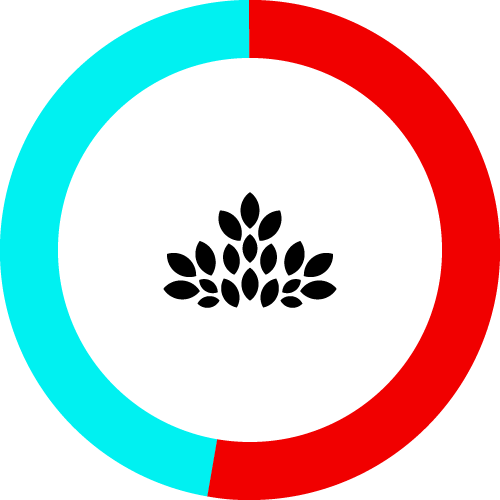
A Year in Review
2019-2020

As we introduce this annual report, most of us are still spending the majority of our time at home as exceptional measures are gradually being eased across Canada in response to COVID-19. There’s no doubt that the current pandemic will stand out in 2020’s history. It is an unprecedented public health crisis, whose repercussions will be felt around the world for years to come. Canada’s colleges and institutes won’t be an exception, and you can be assured that CICan will continue to be there every step of the way to support our members, their recovery, and their critical role in Canada’s future.
Looking back on the past fiscal year feels a bit quaint given how much has changed over the past few months. Still, this report shows our association growing to meet the needs of our members, with new projects generating promising opportunities for colleges and institutes all across the country, both at home and abroad.
In that sense, we were in a good position to leap to action quickly when the pandemic hit. Our immediate priority was to protect our employees, which we did by closing our offices, supporting our entire staff to continue working from home. We also moved quickly to ensure that our members were well represented in Ottawa, as policies had to be adjusted urgently to allow institutions the flexibility required to respond quickly and dispel as much uncertainty as possible, especially regarding international students affected by border closures. We also launched weekly webinars and created new web-based resources to keep colleges and institutes in the know, as the situation evolved quickly. This is the kind of member-focus and agility we strive for in all we do, and which was certainly front and centre this past year.



CICan is proud to be the national voice of Canada’s colleges and institutes and has worked tirelessly over the past year to ensure their priorities are heard and understood by Canadians and key decision makers.
As an election year, 2019 saw our organization and our members mobilize to ensure the priorities of colleges and institutes were clear to candidates of all political parties, both locally and at the national level. Our efforts included the creation of an election 2019 webpage and resources, including fact sheets and shareables to be used by our members when meeting with politicians. We also launched our first letter-writing campaign to help members and their communities reach out to local candidates, encouraging them to visit their campuses to see firsthand the incredible contribution colleges and institutes make in their community.
Following the October 21 election, we reached out to new MPs from all parties and confirmed their connection to the nearest CICan member institution. This included the creation of a new webpage for the 43rd Parliament that provides essential information about colleges and institutes and introduces our members’ advocacy priorities.
The transition to a Liberal minority government saw many changes in senior portfolios, with new ministers coming in and critical staff moving around. This kept our government relations team busy for most of the year, meeting with a variety of decision-makers to explain the role of our sector and ensure our priorities were well understood.
Our CICan on the Hill event was particularly well-attended this year bringing college and institute presidents, government relations leads, and students to Ottawa in February for a packed agenda including panels, armchair discussions and over 40 meetings with members of parliament and senators. The event also included a showcase in which more than 70 students from across Canada shared their innovative capstone projects.
Minister of Innovation, Science, and Industry Navdeep Bains, addressed participants, along with his Parliamentary Secretary Will Amos, Minister of Diversity and Inclusion and Youth Bardish Chagger, Canada’s Chief Scientist Dr. Mona Nemer. Minister of Middle-Class Prosperity and Associate Minister of Finance Mona Fortier also joined us for the event’s official opening! View photos of the event.
This was far from an ordinary year, with the COVID-19 pandemic causing us to reevaluate our advocacy priorities and respond to emerging challenges late in the fiscal year.
Our main priorities were initially shared in August, when we set out seven recommendations as part of our submission to the House of Commons Standing Committee of Finance’s pre-budget consultations in advance of Budget 2020.
We also played a lead role in convening a College Applied Research Taskforce, comprising seven national and regional associations, to insist on the importance of helping Canadian SMEs access the research and development resources available at colleges and institutes. Our joint submission was shared with the Standing Committee of Finance and we also sent a joint letter directly to the minister of Finance.
Though these recommendations stand, COVID-19 forced us to pivot quickly in March. Our advocacy efforts became focused on ensuring that Immigration, Refugees, and Citizenship Canada (IRCC) provided sufficient flexibility to international students who were set to begin their studies at a college or institute but could no longer enter the country. Thanks to our efforts, international students were allowed to begin and complete up to 50% of their program online from abroad in anticipation of a transition to Canada without compromising their eligibility for the post-graduate work permit. At time of writing, these exceptional measures have been confirmed until December 31, 2020.
The relatively quick response from IRCC following the lockdown shows the positive relationship we have been able to build through our continued work regarding international recruitment and student permit processing. We were especially satisfied to see the expansion of the Student Direct Stream this past year in Pakistan, Morocco and Senegal. These last two are especially important in terms of developing the francophone market for international education.
CICan’s advocacy efforts were supported by a variety of communication activities targeting national and regional media. Over the year, we published op-eds, provided interviews and were featured in media such as the Globe and Mail, the Toronto Star, the Canadian Press, Maclean’s, the Hill Times, the PIE News, Study Travel Magazine, and Le Droit.
We also continued working with Marketzone Productions (now MZP) to publish Education for Employment Magazine, which is distributed with Canadian School Counsellor Magazine and Careering Magazine, as well as the Globe and Mail to produce two special features on colleges and institutes. Additionally, we collaborated with Re$earch Money for the second year in a row to create a special feature called Applied Research Comes of Age and a blog on their website. We also offered support to le Droit for their guide to francophone post-secondary institutions.
Throughout the year, we maintained a strong presence on social media, growing our audience considerably across all our platforms.
total growth

growth across all platforms

6,088 followers

1,946 page likes


4,752 followers
On top of engaging directly with politicians and policymakers, we have also worked to bring a college voice to several committees this year, including the Future Skills Council, the Canadian Council for Youth Prosperity and the National Stakeholder Advisory Panel of the Labour Market Information Council (LMIC). We also worked with the Canadian Chamber of Commerce, the Canadian Labour Congress and Senator Diane Bellemare to launch a series of Jobs and Skills Roundtables.

CICan is dedicated to bringing its members together and forging strong partnerships to empower the system as whole. By working in collaboration, we have created many new opportunities for colleges and institutes this year.
Throughout the year, CICan members had the opportunity to gather together to reflect and discuss priority issues and did so in great numbers.
Throughout the year we represented Canadian colleges and institutes overseas by participating in events, and creating new opportunities for our members, both to generate new partnerships and support their recruitment efforts.
Our annual leadership institutes were a huge success with over 170 participants taking part in our seven distinct institutes.
Throughout the year, we also delivered 17 webinars on a range of topics, each providing an opportunity to learn more about specific projects or priority issues, such as: applied research, career launcher opportunities, international development, outbound mobility, SDG’s, federal government initiatives, etc. Additionally, once the COVID-19 pandemic struck, we quickly launched a series of weekly webinars to keep our members apprised of the latest developments and to provide expert advice on everything from international education to making our campuses safer once they reopen. Those webinars have been extremely popular.
Our membership continued to grow this year, to include 136 colleges and institutes, and 14 associates from across Canada. We welcomed two new associates, the Horatio Alger Association of Canada and the Women Building Futures Society, and eight new members:
We signed several new partnerships this year that created new opportunities for our members and their students, including valuable internships and work-integrated learning opportunities.
Thanks to a generous donation of $1 million in endowement from Paul and Gerri Charette, we were able to launch a brand-new bursary program for students attending CICan member colleges or institutes, with a preference given to those studying in rural, remote, or northern areas. The Paul and Gerri Charette Bursary Program was officially announced at our 2019 annual national conference, with the first 10 bursaries of $5,000 each distributed in the Fall.
The program will continue to provide financial support every year to college and institute students who demonstrate a financial need and face barriers to participate in or complete their post-secondary education.
On August 22, 2019, the Government of Canada launched its new International Education strategy, which had first been announced in Budget 2019. We were incredibly proud to be entrusted with the administration of the new Outbound Student Mobility Pilot, a key component of the Strategy, in collaboration with Universities Canada. The pilot represents an investment of $95 million over five years and should help up to 11,000 post-secondary students gain international experience.
Unfortunately, the beginning of the pilot had to be postponed because of the COVID-19 pandemic and subsequent closing of borders, but it remains a priority for both organizations.
Recognizing that education is one of the most critical components of sustainable development, we inaugurated our new ImpAct initiative in February. This groundbreaking project is helping Canada make progress towards the United Nations Sustainable Development Goals (SDGs).
With the support of the McConnell Foundation and the patronage of the Canadian Commission for UNESCO, ImpAct helps to advance Canada’s commitment with three collaborative pan-Canadian projects. These initiatives help strengthen and scale up member institutions’ efforts to reduce barriers to access for vulnerable populations
The project is managed in consultation with 23 members, through a President’s Advisory Committee, and with important input from a 20 member Student and Alumni Advisory Committee. Both met on several occasions this year, along with working groups on social entrepreneurship, campus sustainability and access.
This year, we were especially proud to launch two new Education for Employment projects.
Over the past year, we launched new international projects and partnerships that build on our successful track records in Kenya and Senegal.

CICan serves as Canada’s knowledge hub on the college and institute system, gathering data and producing studies to both improve understanding of the Canadian post-secondary sector and support our advocacy efforts, nationally and internationally.
Once again, we surveyed our members about their research activity to track the evolution of applied research at colleges and institutes, and support our advocacy efforts. Our latest report was launched in November and shows that colleges and institutes continue to play a fundamental role in supporting innovation in all sectors of the economy and across Canada.
Colleges and institutes reported over 7300 research partnerships, the majority with SMEs. This led to more than 4400 new processes, products, prototypes and services, the large majority of which were completed within one year.

private sector SMEs (< 500 employees)

private sector large enterprises (< 500 employees)

not-for-profit

government

international

prototypes
2119 199

products
884 142

processes
481 118

services
336 124
With the labour market changing faster than ever to keep up with disruptive technologies, we commissioned a survey this year to see how Canadians feel about retraining and lifelong learning, and how they perceive colleges and institutes more generally. A report based on this poll was launched in November and shows that lifelong learning and access to hands-on training opportunities are highly valued by Canadians.
Since the Government of Canada introduced its Feminist International Assistance Policy in 2017, we have taken several steps to further integrate gender equity into our various international projects. This year, we hired a new Gender Advisor to work with our project teams and published two reports linked to ongoing Education for Employment programs.
Investments in skills and innovation infrastructure remain a priority for colleges and institutes and have not kept pace with changing needs and technology. There is an acute need to upgrade outdated infrastructure and address deferred maintenance on campuses. This is why we conducted a new survey this year to better evaluate the infrastructure needs of our members, and support our advocacy efforts.

Colleges and Institutes Canada
MANAGEMENT’S RESPONSIBILITY FOR FINANCIAL REPORTING
The accompanying summarized financial statements of Colleges and Institutes Canada are the responsibility of management. They have been derived from the association’s complete financial statements which have been prepared in accordance with generally accepted accounting principles using information available to May 12, 2020, and management’s best estimates and judgements.
Management has developed and maintains a system of internal controls to provide reasonable assurance that all assets are safeguarded and to produce relevant, reliable and timely financial information, including the accompanying financial statements.
The Board of Directors discharges its duties relating to the financial statements primarily through the activities of its Audit Committee. The Audit Committee meets at least annually with management and the external auditors to review both the financial statements and the results of the audit examination with respect to the adequacy of internal accounting controls. The external auditors have unrestricted access to the Audit Committee. The Audit Committee also considers, for review by the Board of Directors, the engagement and re-appointment of external auditors.
The financial statements have been audited by Deloitte LLP on behalf of the membership. The Board of Directors met on June 19, 2020 and approved the financial statements.


June 19, 2020
March 31, 2020, with comparative figures for 2019
2020 |
2019 |
|||
| Assets | ||||
| Current Assets | $ | 20,923,215 | $ | 20,566,320 |
| Investments | 2,603,360 | 2,530,677 | ||
| Investments – Endowment Fund | 974,914 | – | ||
| Capital Assets, net | 705,572 | 797,536 | ||
| Intangible Assets | 63,298 | 164,728 | ||
| $ | 25,270,359 | $ | 24,059,261 | |
| Liabilities and Net Assets | ||||
| Current liabilities | $ | 20,322,817 | $ | 19,726,017 |
| Lease Inducements | 136,277 | 157,795 | ||
| Net Assets | 4,811,265 | 4,175,449 | ||
| $ | 25,270,359 | $ | 24,059,261 | |
| Summarized Statement of Operations | ||||
| Year ended March 31, 2020, with comparative figures for 2019 | ||||
2020 |
2019 |
|||
| Revenue: | ||||
| Project Revenue | $ | 33,438,026 | $ | 23,627,064 |
| Less: direct Project Expenses | 25,696,602 | 17,193,517 | ||
| Net project contribution | 7,741,424 | 6,433,547 | ||
| Membership fees | 3,205,646 | 2,983,929 | ||
| Other | 445,697 | 404,564 | ||
| 11,392,767 | 9,822,040 | |||
| Expenses: | ||||
| Human resources | $ | 8,930,513 | $ | 8,275,272 |
| Amortization of capital assets | 166,128 | 193,863 | ||
| Other | 1,626,642 | 1,805,100 | ||
| 10,723,283 | 10,274,235 | |||
| Excess (deficiency) of revenue over expenses | ||||
| before undernoted items | $ | 669,484 | $ | (452,195) |

All of the achievements listed in this annual report would not have been possible without the continued support of our members and of our many partners in industry, government, and from other associations in Canada and around the world who share our commitment to excellence in education.
Thank you also to the remarkable members of our Board of Directors, for sharing their time and knowledge, as well as to all the individuals involved in our various advisory committees and Leadership Institutes whose input ensures we continue to meet the needs of our member institutions.
Finally, thank you to the entire staff of CICan for their continued hard work and dedication.